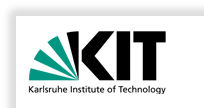The previous FESCA workshops at ETAPS 2004-2012 enjoyed high-quality submissions and attracted a number of recognized guest speakers, including Manfred Broy (Technische Universität München, Munich, Germany), Ivana Černá (Masaryk University, Czech Republic), José Luiz Fiadeiro, (University of Leicester, UK), Constance L. Heitmeyer (Naval Research Laboratory, USA), Rolf Hennicker (LMU, Munich, Germany), Samuel Kounev (KIT, Germany), František Plášil (Charles University, Prague, Czech Republic) and Martin Wirsing (LMU, Munich, Germany). It is expected that FESCA 2013 will make an equally positive contribution.




